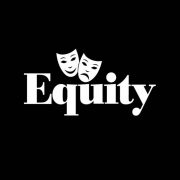 Whether you realize it or not, acting is a business. Unfortunately, when you’re a struggling actor trying to book jobs, the craft itself has to take a backseat (but not thrown out of the car by any means!) while you’re working your butt off to get yourself out there.
Whether you realize it or not, acting is a business. Unfortunately, when you’re a struggling actor trying to book jobs, the craft itself has to take a backseat (but not thrown out of the car by any means!) while you’re working your butt off to get yourself out there.
Most of us start out with little money in our pockets. That means we need to work survival jobs, train and act at the same time. That’s a lot of time, effort and stress. Balance is key, but you need to learn how to prioritize.
In 2016, the most successful actors are those who knew exactly how to get from point A to point B. They knew when to work on their acting skills, when to market themselves, when to network and make connections and where exactly apply every one of those skills.
RELATED: Acting for Beginners 101 – The Ultimate Guide
In this article (which I’m going to make into a series of acting business related posts), we’ll discuss how you can and should plan your acting career, and why it matters. So buckle up, because I’m about to upset many naive thespians who were ready to take the industry by storm with no money, no plan and only their talent and cigarettes in between their teeth.
As you’ll be reading this post, remember that my goal here is not bring negativity into your life and deter you from the acting business. On the contrary, I’d like you to pursue this career while grounded in reality so that you have the biggest chance of succeeding.
Actors’ Reality Check & 5 Steps to a Solid Acting Career Business Plan
1. Be a SMART Actor
In this personal business that you’re trying to bootstrap, you – the actor – are the product that you are trying sell. Remember, you are entering into a very competitive field where there is already a lot of similar, albeit not identical, “types of products.” This means that you can succeed, but you need to plan well.
It probably pains you to see the situation in this cold way, but that’s the cruel reality of show business.
So don’t try to be only a talented actor. Be a smart actor, and approach your career just like you would any other career or business, because truly, it’s not that much different if you’re looking to achieve success. Remember to stay skeptical and ask the most important question, “why?”
Just like with any other start-up ventures, in order to be successful, you need to lay out your future steps in front of you.
So please do have a business plan for your acting career. You can write it down (recommended), or at least repeat it to yourself in your head every morning you wake. Take whichever approach you want.
Just know exactly where you’re going and how you’re going to get there.
This is what smart actors today do, day in and day out. Sillier ones follow the oversold publicity-stunt stories of “moving to major cities with $100 in their pockets and becoming overnight successes.”
This brings me to my next very important point…
2. Don’t fall for the BS
One thing I really want to make it clear for you if you want to approach this career with smarts rather than naivete is to not fall for the show business BS. I’ll elaborate.
Let me tell you right now, 99% of those stories aren’t true.
Many of those stories have already been debunked, too. One of those that stands out to me right now is not about the actor per se, but a director: Quentin Tarantino. There’s this story that’s been going around (and it still is because people love that type of stuff!) about how QT learned filmmaking from working at a film store.
Now, this story is entirely UNTRUE. Tarantino himself has said that on Charlie Rose Show back in 1995. Here’s a video of the whole interview. For those who don’t wish to watch it, here’s what QT said after being asked by Charlie about the film store story:
“I don’t know if it’s that much of a film school. A friend of mine, Roger Avery, who I just produced a film with has been putting out this theory and the press has been eating it up like it was pudding, all right, you know. And I don’t think he believes in it in two seconds, and I don’t even believe in it that much, all right.”
Yet I still hear that story being repeated now, in 2016, as if it was fact. The same could be said for the vast majority of stories about currently successful actors. All of this is for the press.
Remember that, it’s important.
Another thing to keep in mind when it comes to stories of “overnight success” and “sleeping on theater floor while pursuing acting” is a very simple concept called Survivorship Bias.
What survivorship bias is in its most simple terms is logical error of focusing on famous people that “survived” the struggle, while unintentionally overlooking those that did not because they were not brought to your attention. This usually leads to false conclusions, particularly leading other aspiring actors to follow the same journey.
Basically, when you hear those stories about successful actors from others (“Think what Brad Pitt did! You can do the same!”), what they don’t tell you is how many thousands, if not millions, of actors failed on the very same journey.
Actors in Los Angeles can confirm that. At least half of the homeless people in Venice came to LA to become actors with no plan or money.
I said this before, and I’ll say it again. When you get in a car, you know two things: where you are going, and how you are going to get there. You’re not driving blindly around town hoping to finally bump into the store you need.
This concept should be applied to your acting career. You can’t get to where you want to be if you don’t know how you’re getting there.
Business plan for your acting career is a number of small goals you want to accomplish, possible deadlines (only if that helps), and plenty of research and knowledge.
RELATED: Why Actors Should Get Into Filmmaking?
3. Ask Yourself the Right Questions
Before you even start thinking numbers, days, money and options, there are a few questions that you need to answer for yourself.
You must be brutally honest with yourself in order to clarify your future long-term goals. You can come up with plenty of questions yourself (and you should) – question as much as you can. Better yet, write them all down so that you can come back and re-read later.
For now, here are just a few examples for you to answer:
- How will acting fit in your current way of life?
- Are you going to do it as a hobby or a profession?
- What part of acting are you interested in (film, TV, stage, etc.)?
- Where do you see yourself in 4 years from now?
- What do you currently need to achieve your goal (training, money, etc.)?
- Will your friends and family support your journey?
- Do you have the means to pursue your dream?
- Can you afford not having a steady income for years to come?
- What kind of a survival job are you thinking of getting?
- Will you be able to afford rent, classes, gas, etc.?
- Do you have connections within the industry?
- Are you good at networking with business people?
- Is there anything else that you would rather do than acting?
These are just some of the questions that you should ask yourself while writing out your acting career business plan. Every answer might stir you in another direction.
However, right now you might not have the necessary knowledge to answer part of them intelligently and will probably try to copy someone else’s answer, or find the best possible response. There’s no need to do that. Instead, write down all of the questions you come up with, but don’t try to answer; you’ll get back to them later.
So what’s the next thing you should do?
Your first priority is to research and educate yourself on the acting business. How much it’s going to cost? How much time it’s going to take? What are the chances of success? Do you have to move to another city? How much is the rent, classes, workshops, transport in that city? All of this is vital for you to know.
Plenty of these questions have been answered in the hundreds of articles on Acting in London, so make sure you read this site. A good place to start is our Acting for Beginners Guide as well as to subscribe to our newsletter so that you receive more tips like this.
Here’s the deal: once you’ve done your due diligence, you will either get encouraged by the challenge or get scared and run away.
But remember this: if acting is your actual passion rather than an ego-driven venture, are you going to be able to live with the feeling of regret for the rest of your life that you did not pursue your a career that’s the most fun for you? Think about it every time you feel discouraged.
RELATED: How to Get an Agent 101
4. Prepare Yourself
Enough with the questions, it’s time for some answers.
An actor’s “business plan”, while a real thing, resembles a standard “to-do list”. In my opinion, it should still remain a serious document and you should treat it as an actual business plan. Your lifetime’s work and career depends on in.
You are going to have to come up with your own to-do list, but I’ll start you off with some very broad tasks (break them down into smaller ones). In a future article, I’ll bring some actual examples of business plans that you can emulate with your own goals.
For now, we have only three things for you to start with:
- Read
- Research
- Take action
Let me break these down and elaborate a little.
Read about the acting business (not just the craft)
It’s always good to read about the acting craft itself and glean wisdom from those who have been down the path before. But you cannot learn how to act from reading books or blog posts. You will need to get into an acting class and start working on your skills to become better.
With that in mind, make sure that most of your reading is focused on the business side of acting. What you’re going to need to do as an actor, how to get an agent, how to market yourself, how to network effectively and whatever other skills and ideas you can pick up just from reading these types of books.
Having all the necessary knowledge before jumping into the pool of clueless but experienced competition will give you at least some advantage.
There are a lot of applicable books with tons of useful information out there. Some of them are great, others are a complete waist of time and money. Since the website you’re currently reading this article on is free, I suggest you read everything on here first before you start spending money.
If you do want to purchase a book or two, there are a few lists with recommends already prepared:
- 5 Best Books on Acting Business
- 5 Books Every Actor Must Own on Acting Techniques
- 10 Best Books to Expand Your Imagination
- 10 Best Books on Creativity for Actors
Take your time to do careful research
Internet is the greatest invention since Gutenberg, so use it. Simply by Googling everything you can find answers to almost any question you have. Don’t forget that not every website out there tells the truth, however.
Research people and places in your town, find out who’s casting that production being filmed a block away from you. Learn about local acting classes, workshops, theatres, clubs, agencies and casting offices.
You have probably already noticed this, but social media has really taken off in the last 5 years. Almost everybody is using one social network or the other, or maybe obnoxiously using every single platform out there.
The same applies to generally building your presence online, which can be done by building your own website as well instead on relying solely on social media platforms. Here’s some great advice on how to build your own website for free.
RELATED: Acting Websites – Why You Need One for Your Acting Career
Do not become a researcher; take action!
I did mention not to rush into this and spend some time researching and reading. It’s good to have some understanding about how the industry works. However, do not become one of those people who continuously “prepare” to enter the business. That’s just procrastination.
After you’ve read a couple of good acting books and done your research, and you already have a plan of action (your acting career business plan, or blueprint), it’s time to take those steps you’ve outlined, slowly, one-by-one.
So tell me, what is your next step going to be? Where are you going to start? Are you getting some community theatre experience, auditioning for some small gigs, getting into an acting class or applying to go to a drama school?
Or maybe you’ve decided to write your own script, direct and produce it? If that’s the case, you’ve probably taken the best approach. Here’s why actors should get into filmmaking and why you must start producing your own content as soon as you can.
Regardless of what you decide, just do something. Take action!
5. Your Acting Career Business Plan
Like I said above, why not to actually write your acting career business plan? Personally, I think this will help you to stay on track. Have you noticed how our Acting for Beginners Guide is structured? You can try to use the same formula for your business plan.
Here’s an example of your possible “Table of Contents”:
Chapter 1: Research
- Internet Research
– Acting in London
– The Stage
– Google - Books
– Acting in London book
– Acting for Dummies
– Sanford Meisner’s book - People
– Friends who are actors
– Small-time agents on Facebook
– Casting directors on Twitter
Chapter 2: Training
- Acting Classes
– Acting class #1
– Acting class #2
…and so on.
Then go deeper into every section and write down websites, names, addresses and things like that. Approach it seriously, like a real business, because it really is one. Calculate your costs, put down deadlines, write down what you’re trying to get out of those steps.
You might not believe me now, but you’ll understand it better once you’ve pursued this career choice for at least a couple of years.
Do not write your whole acting career blueprint for upcoming 20 years. If you do, then you might as well sell it as a novel. But I recommend you stick to just one year first, and update it later. Always keep the ultimate goal, the prize for the struggle, in your mind.
This industry is very unpredictable and you never know what might stir you into a different direction. A lot of the things might change during the course of just one year: your perspective on this career, on life, on your goals. Your financial situation might also be different in one year.
Don’t forget to include small tasks that you want and need to accomplish. It could be for a day, week or a month, but they are an essential part of the bigger picture. You still need to eat, a place to sleep and a way to get to auditions. How are you paying your bills?
Keep your business plan close to you: on your computer desktop or maybe even print it out. Occasionally revise it, make sure your career is progressing and you’re accomplishing things.
YOU are the product, and you need to make sure that your product is always in good shape, well maintained and is getting ready to be sold to the public. Keep fighting the good fight!









